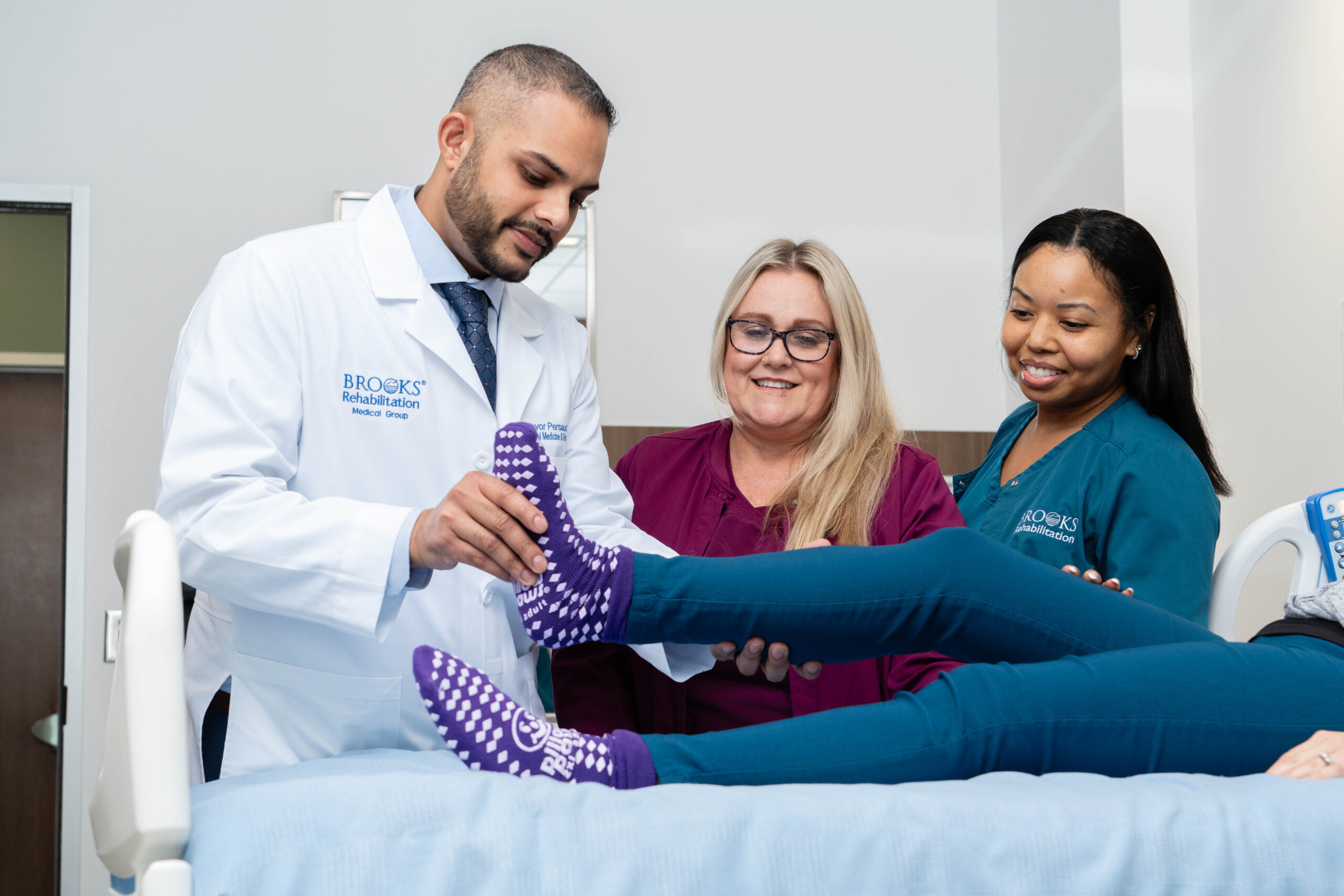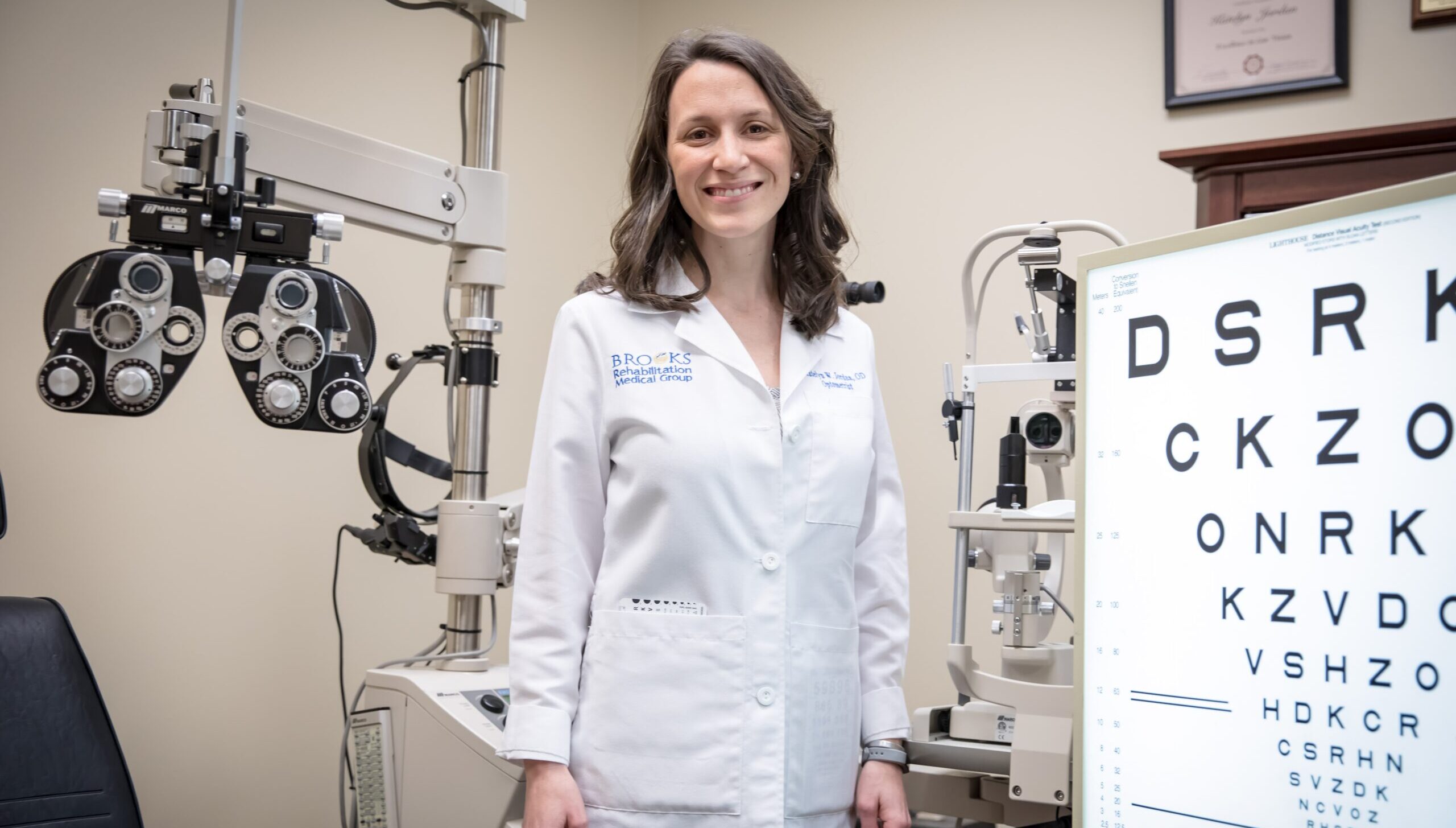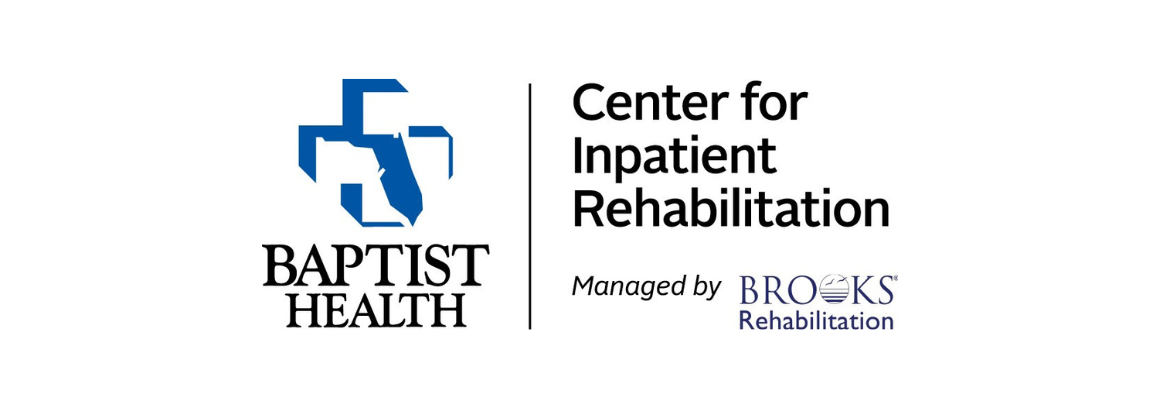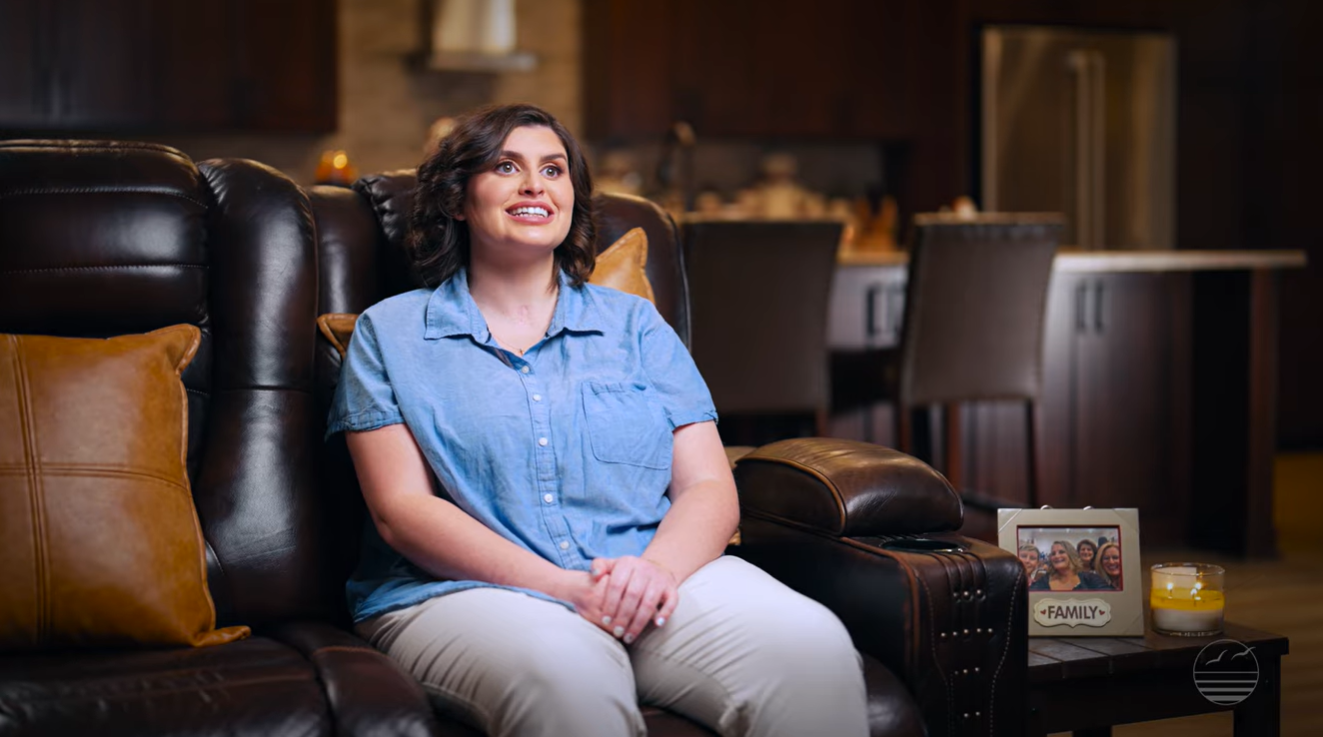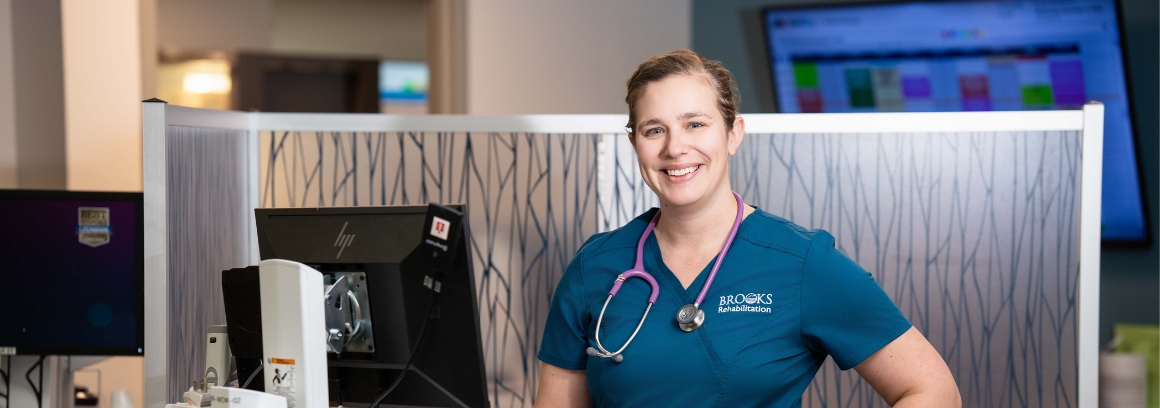Condition Overview
Non-traumatic brain injuries (also called acquired brain injuries) happen when medical conditions or complications disrupt how the brain functions. These injuries may develop suddenly or over time and can lead to lasting changes in how you move, think, feel or communicate. With specialized rehabilitation, many people make steady, meaningful progress.
What Causes Non-Traumatic Brain Injury?
Common causes of acquired brain injury include:
- Lack of oxygen: Events like cardiac arrest, near drowning or respiratory failure can deprive the brain of oxygen. Learn more about hypoxic and anoxic brain injury.
- Liver or kidney failure: These conditions cause chemical imbalances and toxic buildup in the body, which may damage brain tissue over time.
- Stroke or vascular injury: A stroke, brain bleed or an aneurysm can interrupt the flow of blood and oxygen to the brain.
- Other medical conditions: Infections, autoimmune diseases, seizures, tumors or drug overdose sometimes cause a brain injury.
Non-Traumatic Brain Injury Symptoms
Acquired brain injury symptoms fall into four categories:
- Cognitive: Trouble with memory, attention, decision-making or understanding complex ideas
- Emotional: Irritability, impulsiveness, mood changes or increased stress
- Physical: Headaches, fatigue, weakness, seizures, speech difficulties or light sensitivity
- Sensory: Changes in how things smell, taste or feel; sensitivity to pain, sound or light
How Is Acquired Brain Injury Treated?
Immediately after the injury, providers focus on addressing the cause and protecting your brain from further harm. You may need medicine to manage symptoms, fight infection or reduce pressure in your brain. In some cases, you need surgery to treat the problem directly. Once the condition is under control, rehabilitation can help you start recovering.
Long-Term Effects of an Acquired Brain Injury
Some effects of a non-traumatic brain injury can last for months or even years. These issues may become more difficult to manage over time.
Common long-term effects include:
- Anxiety
- Cognitive difficulties, such as trouble with memory or focus
- Depression
- Fatigue
- Irritability
- Mood swings
Rehabilitation After Non-Traumatic Brain Injury
Brooks is home to one of the nation’s most comprehensive brain injury rehabilitation programs.
Offerings include:
- Inpatient rehabilitation, a hospital-based setting with continuous medical care and therapy tailored to your recovery
- Skilled nursing care, rehabilitation and support after an inpatient stay if it’s not medically safe to return home
- Outpatient therapy, care that targets improvements in strength, movement, speech and memory
- Home health services, nurses and therapists bring care directly to your home
- Brain injury day treatment program, full-day therapy focused on building independence after outpatient rehab
Why Choose Brooks for Acquired Brain Injury Rehabilitation?
Brooks Rehabilitation offers specialized rehabilitation and support for people recovering from non-traumatic brain injuries. Our team regularly treats some of the most complex brain injuries in the country, enabling us to successfully manage a broad range of needs.
Highlights of our program include:
- Whole-person approach: Our team looks beyond physical symptoms to understand how a brain injury may affect thinking, mood and behavior. Specialists work together to guide your recovery in a way that supports every part of you. You may benefit from cognitive rehabilitation, medications or psychology services.
- Innovative technologies: Brooks is the only program on the East Coast offering the Cyberdyne HAL (Hybrid Assisted Limb) exoskeleton. This device helps strengthen the connection between the brain and muscles in the lower limbs to support natural movement. You’ll find it in our neuro recovery centers.
- Care that adapts as you recover: Non-traumatic brain injury rehabilitation doesn’t always unfold as expected. Experts at Brooks keep a close eye on your progress, spotting small changes that may signal the need to adjust your care. Our providers stay in close communication, making it possible to update your therapies promptly.
FAQs Acquired Brain Injury
What’s it like recovering from an acquired brain injury?
You can find more information about rehabilitation and living with a brain injury from our peer mentors. They are fellow brain injury survivors who share insights and give you the encouragement you need. Their real-world experience can help you feel more prepared for what’s ahead.
Can you help me continue working toward my goals after inpatient rehabilitation?
Brooks offers Florida’s only brain injury day treatment program, designed to keep your progress going with full-day therapy and coordinated support. It’s a helpful next step if you’re ready to leave the hospital but still want more structure than traditional outpatient therapy.
What kind of support is available for my family?
We provide caregiver training and education, so your family feels confident supporting you at home. This includes hands-on guidance for care tasks, like helping you get around safely, assisting with meals or using medical equipment. We also offer support groups for you and your family.
Request Care at Brooks
At Brooks we treat some of the most complex brain injuries in the nation. Let us join you on your road to recovery.Latest News and Health Resources
Education and guidance to support your recovery
Q&A with Katelyn W. Jordan, OD, FAAO, FNAP
Katelyn W. Jordan, OD, FAAO, FNAP, director of Vision Rehabilitation Services, has been with Brooks for 12 years. Dr. Jordan graduated with her doctor of optometry, Magna Cum Laude,...
